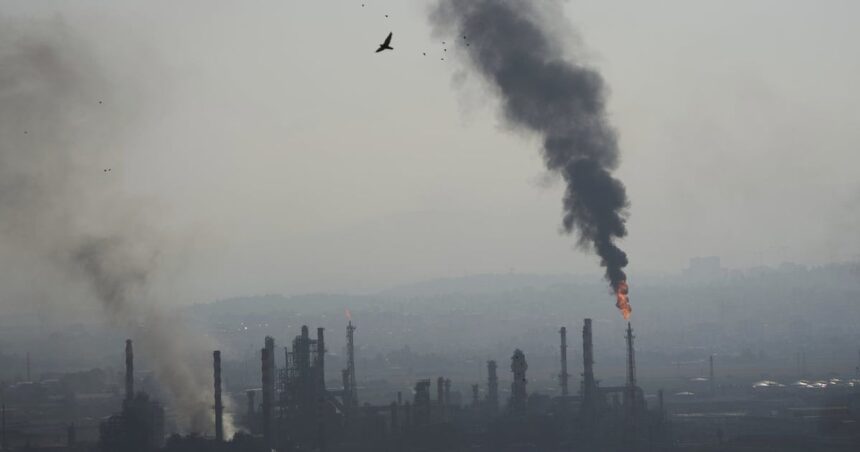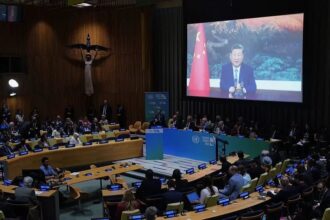As missiles streaked across Middle Eastern skies Tuesday night, former U.S. President Donald Trump made a startling recommendation that civilians evacuate Tehran, signaling yet another dangerous escalation in the spiraling conflict between Iran and Israel that threatens to engulf the entire region.
“People should be getting out of Tehran right now because something’s going to happen,” Trump declared during a Fox News interview, suggesting imminent retaliation after Iran launched approximately 180 ballistic missiles at Israel in what Tehran called “Operation True Promise II.”
The unprecedented Iranian barrage—the second direct attack on Israeli territory this year—killed at least eight people, including Palestinians and Thai nationals in the West Bank. This marked a significant intensification from Iran’s April drone and missile attack, which caused minimal damage thanks to interception efforts by Israel and its allies.
Israeli Prime Minister Benjamin Netanyahu, speaking from military headquarters in Tel Aviv, vowed a decisive response. “Iran made a big mistake tonight and will pay for it,” he stated in a recorded message.
The Biden administration has publicly maintained a cautious position, with National Security Council spokesperson Sean Savett confirming that President Biden “directed his team to support Israel as it defends itself against Iranian attacks.” However, administration officials privately acknowledged that restraining Israel’s response presents a formidable diplomatic challenge.
Regional analysts note that this escalation follows months of mounting tensions. “We’re witnessing the dangerous fruits of the ‘maximum pressure’ campaign against Iran combined with the total breakdown of diplomatic channels,” said Dr. Vali Nasr, professor of Middle East Studies at Johns Hopkins University, in a telephone interview.
The conflict has already disrupted global markets, with oil prices surging more than 4% following the missile exchanges. Major airlines including Lufthansa, Air France, and Emirates have suspended flights to Tel Aviv, while the European Union Aviation Safety Agency warned airlines to exercise “extreme caution” when operating in the region.
Israel’s retaliatory options appear limited but potentially devastating. Military analysts suggest strikes could target Iranian nuclear facilities, oil infrastructure, or military installations—any of which would likely trigger further escalation. The Israeli military has already demonstrated its reach by striking Iranian state television during a live broadcast Wednesday morning, temporarily disrupting transmissions.
As world leaders scramble to prevent further escalation, civilians across the region face mounting uncertainty. In Tehran’s bustling markets, residents report a mixture of defiance and anxiety. “We’ve lived with threats for decades,” said Amir Hosseini, a 46-year-old shopkeeper quoted in local media. “But this time feels different.”
The conflict raises serious questions about the effectiveness of traditional diplomatic channels in an increasingly fractured global order. With UN Security Council emergency sessions producing little tangible progress and regional mediators struggling to find common ground, what diplomatic innovations might prevent the Middle East from sliding into a catastrophic regional war that no one claims to want?










